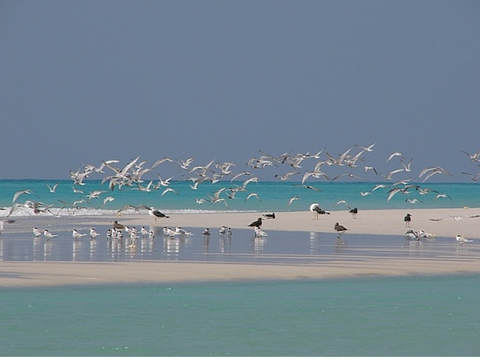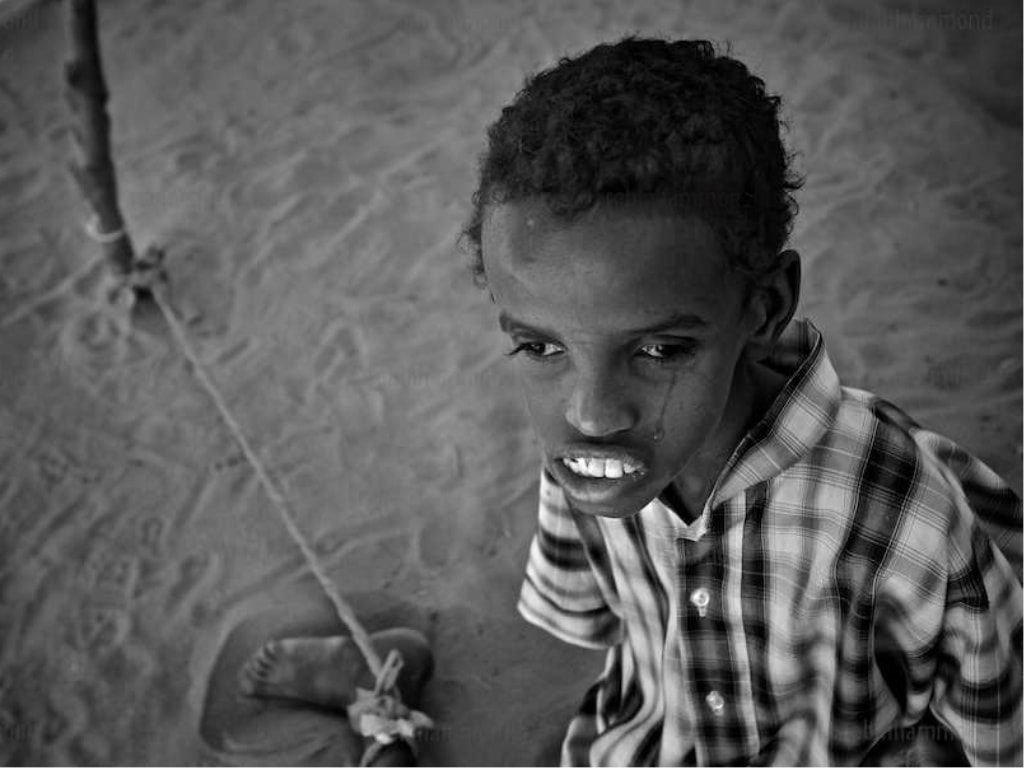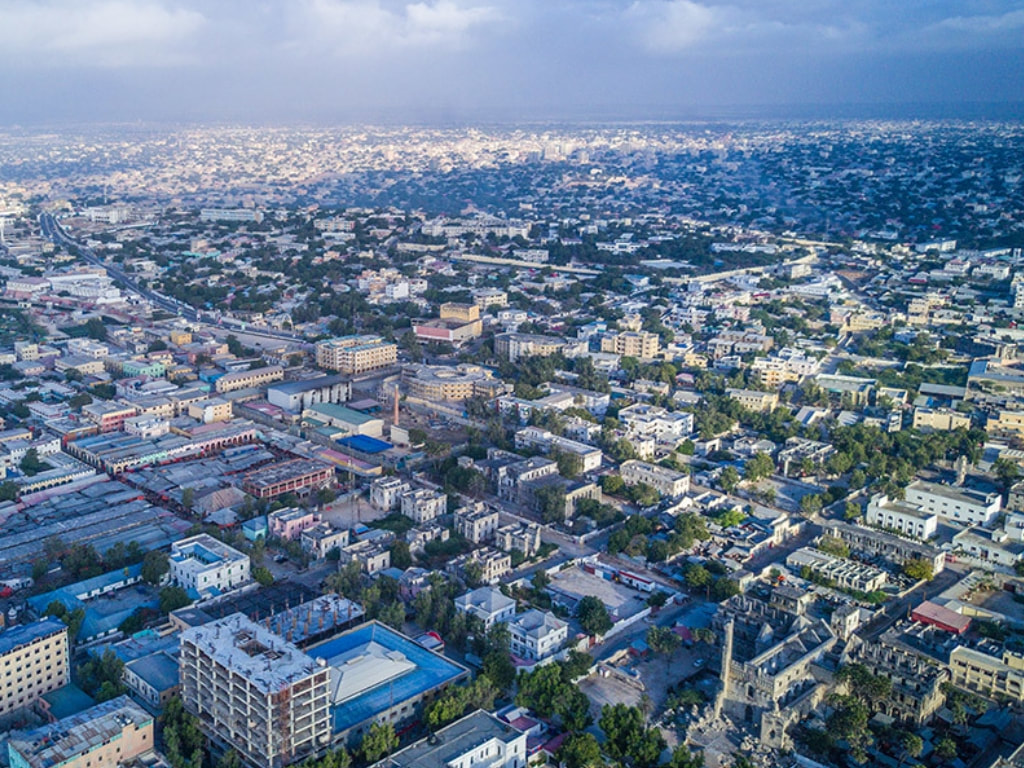 Berbera, Somaliland Berbera, Somaliland Somalia is situated in the most eastern tip of Africa known as the “Horn of Africa. “It has been the Gateway to Africa for business and trade for millennia. Somalia’s unique geographic location makes it a dynamic meeting place, where East meets West and North melts into South. Somalia is bordered by its historic trading partners; Kenya in the South-west, Ethiopia in the North-west and Djibouti and the Red Sea to the North. The vast Indian Ocean waves meet Somalia’s long coastline to the East and South. Somalia’s wondrous equatorial forest is seamlessly joined by the white sand beaches of the Indian Ocean as one travels toward the South of the country. With a landmass of 637,000 Sq km and the longest coastline in all of Africa, Somalia is more than twice the size of Italy, but with less than one-third of the latter’s population. Somalia has turned the corner from recent turmoil and is ready to resume its historical role as the Gateway and Business Centre of Africa and the Indian Ocean, and the Red Sea corridor. Somalia has nearly 2,000 miles of coastland, giving it an ideal vantage point of all trade that passes from the Western Hemisphere to the Eastern Hemisphere through the Indian Ocean. Shipping cargo goes from the Mediterranean through the Suez Canal into the Red Sea, where it must then pass through the Strait of Bab-el-Man-deb before it can enter the Gulf of Aden and the Indian Ocean. The people Somalia’s population of over 12.3 million people and two million Diaspora living across the globe are a homogeneous society that shares a common ethnicity, religion, and language. The Somalis traditional way of life is mainly nomadic pastoralism, although there are sedentary communities in the riverine and inter-riverine. The Somali have systematically stretched their mercantile culture to their neighbors. Today’s multilingual descendants of their pastoralist and farmer forefathers have continued the business tradition and are now Telecom Operators, Logistics and Supply siders, Multi-Lingual and Multiculturalists, and Farmers and Livestock traders. Over 70 per cent of the Somali population is under 35, with most of them having attained advanced academic and vocational education and training. They are multi-skilled and ready for all manner of employment opportunities. Somalia is now ready to share its abundant opportunities with your investment dollars. Over 2 million global citizens Somalia is a country of entrepreneurs with over 2 million Diaspora members living across the world. The active Diaspora, in partnership with local firms, communities and individuals, are spearheading the economic recovery of the country with the expertise, skills, experience and capital they acquired in their time abroad. International research shows that a majority in this group intend to return to Somalia to invest. For this, they require modern banking, housing, education, infrastructure, technological and professional service support to make long-term investments more profitable. This is a great opportunity for Investors to enter into partnership with this influential and successful group driving forward change and prosperity in Somalia. A growing economy According to the World Bank. As of September 13, 2018 - Somalia’s economy is projected to grow at an annual rate of 3–4 percent, according to the third Somalia Economic Update (SEU) published by the World Bank. Titled “Rapid Growth in Mobile Money: Stability or Vulnerability?” the SEU assesses Somalia’s vibrant mobile money market, and provides concrete recommendations for introducing mobile money regulation that can boost a secure system for widespread financial inclusion. The social impact of investment Investing in a country recovering from conflict will reduce the chances of it returning to war, so any funds placed in the country can have a huge social and political impact. Early investors in a post conflict country will encounter fewer competitors and will gain the so called first mover advantage. A small amount of finance can go a long way in Somalia, thanks to relatively low costs and the country’s relative poverty.  Ahmed Adan Ahmed (pictured), 13, was tied to a stick by his mother who did not know how to deal with his mental health problems. Ahmed Adan Ahmed (pictured), 13, was tied to a stick by his mother who did not know how to deal with his mental health problems. Prolonged conflict and instability have impacted on the mental and psychological well-being of the Somali people. It is estimated that one in three Somalis has been affected by some kind of mental illness, a prevalence which is higher than in other low-income and war-torn countries. According to the Word Health Organization, as of 2017 there were only five mental health centers in the whole of Somalia, with just three psychiatrists working at those facilities. Mental health has been an underfunded and neglected sector in Somalia with lack of funds due to poor allocation of resources by the donor community as well as by the public health local authorities. The entire burden of the mentally ill is left to the family and thus to the local communities, causing a cost to the whole society in terms of development and resources. Cultural Stigma Related to Mental Illnesses Many Somalis with mental illness are socially isolated. The pain of this isolation is felt intensely because Somali culture is traditionally communal and family oriented. While a person with mental illness may be ostracized from the community, their fear of stigma may be even more powerful. Whether the ostracism is created by the community or self-imposed due to anticipated negative responses, the social isolation creates a profound worsening of the mental illness. This social isolation can be very disorienting and can make the process of healing very difficult. In fact, even without prior mental health problems, isolation from the community alone can contribute to the development of depression. The situation of the mentally ill people is worsened by the fact that Somalis believe that once a person becomes mentally ill, he/she will never recover. A Somali proverb says that a mentally challenged person can only improve but never recover (nin waashay wuu ladnaaday mooyee wuu bogsaday maleh). ISIR Consulting works to achieve specific results for our clients - results that ultimately improve people's lives. |
ISIR ConsultingWe offer a wide range of services to clients in helping tackle, and address transition and development dilemmas, turning challenges into opportunities and engaging local communities to develop homegrown solutions to threats and challenges. Archives
December 2021
Categories |
Isir Consulting | All Rights Reserved | Designed by DreamBuilders Website Design


 RSS Feed
RSS Feed